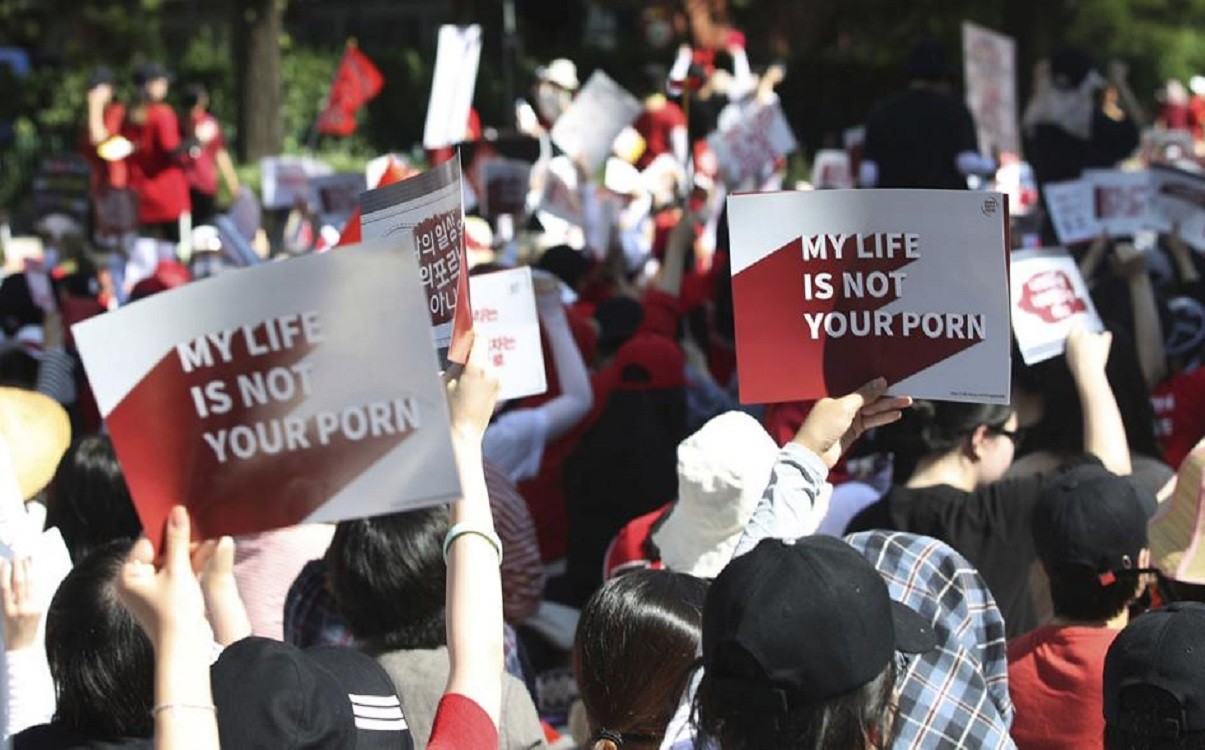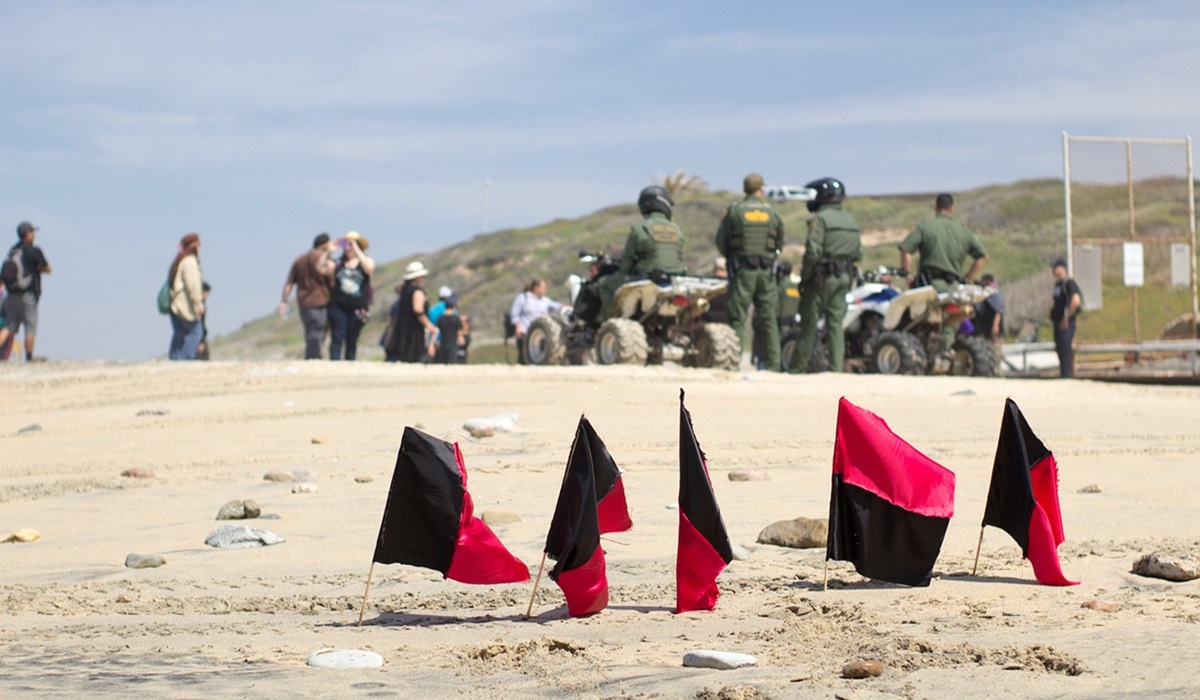Combating Digital Sex Crimes in South Korea. For years women in South Korea have been fighting for change
New Measures an Important First Step, But More is Needed
In the wake of the chilling “Nth room” case, the South Korean government recently announced an inter-agency plan to “eradicate digital sex crimes.”
This response is a testament to the women’s rights activists who have fought for years to make officials take digital sex crimes seriously. But the measures raise digital rights concerns, including freedom of expression for women and girls online, and only scratch the surface of what a comprehensive response should entail.
In late April, as part of measures to establish a “zero-tolerance” policy, the National Assembly passed bills to crack down on perpetrators of digital sex crimes.

Reforms included but were not limited to making it a crime to possess, buy, store, or watch non-consensually captured images, with punishments of up to three years in prison or a fine of up to 3 million won (US$2,600). The law also raised South Korea’s minimum age of consent from 13 to 16.
While an improvement, some of these new provisions are as problematic as previous laws in that they permit very light sentences that are inadequate to genuinely deter or punish such grave crimes.
Moreover, in practice, judges often treat perpetrators with leniency. For example, SBS News reported that 92 percent of 2019 convictions for sexual exploitation of children and adolescents resulted in a fine averaging 2.9 million won.
Human Rights Watch also found that judgments leaned to fines over incarceration. Digital sex crimes are an extreme form of abuse with long-term consequences for survivors; criminal law provisions need to reflect that.
The government also needs to ensure that survivors can access the justice system in a meaningful way. The survivors of digital sex crimes we interviewed consistently detailed how the abuse they had already suffered was compounded by a hostile justice system.
We heard about police who refused to take complaints, laughed at victims, and joked about intimate images; investigations that placed the burden of collecting evidence on survivors; and judges who so consistently gave lenient sentences that perpetrators know they have little to fear.
Unsurprisingly, we also heard that most victims have so little faith in the justice system that they don’t bother to report crimes.
Whether survivors decide to press charges is further complicated by South Korea’s troubling criminal defamation law, which leaves accusers vulnerable to prosecution for speaking out publicly even when what they say is true.
The penalty for criminal defamation ― up to two years in prison, or a maximum fine of 5 million won ― means some victims could face tougher penalties than their abusers. Women’s rights activists have long advocated for the law to be changed.
Tougher sentences will have little impact if the government doesn’t ensure that victims can trust the justice system. This requires recruiting more female police and setting clear guidance for how police respond to digital sex crimes, with consequences when these expectations are not met.
It also requires sensitizing law enforcement and the judiciary against victim blaming and training them to take this issue seriously. They will need training to deepen their understanding of technology and how it can facilitate violence.

Survivors of digital sex crimes need additional support to pursue justice and rebuild their lives, including legal assistance and laws allowing them to sue their abusers so they can recover damages, receive mental health support and access services to help them remove the abusive content from the internet.
While the South Korean government has taken a positive step by supporting a center for survivors of digital sex crimes, it should do more. Survivors need to be able to recover damages from abusers for the harms they suffer, and civil society organizations need resources so they can help survivors put their lives back together.
Finally, the government has a responsibility under international human rights law to work beyond the justice system to combat the deep gender inequality that normalizes gender-based violence in South Korea.
Survivors and experts told us that in some circles in South Korea sharing abusive images is seen as a normal, fun thing to do. The government should work to shift social norms, among other things, by mandating comprehensive sexuality education that teaches both children and parents about consent and digital citizenship.
In recent weeks, as Covid-19 lockdowns have led to many people spending even more of their lives online, there have been alarming suggestions of increased digital sex crimes around the world.
South Korea has been one of the countries hit earliest and hardest by digital sex crimes such as the use of hidden cameras to film non-consensual material and the Burning Sun scandal that disturbingly revealed several prominent entertainment industry figures as serial sex offenders not to mention complicity with the Korean police force.
As the government implements reforms, it is crucial that it continue to think beyond punishment and consult women’s rights and digital rights groups. South Korea’s response will be an example to the rest of the world of how governments should ― or shouldn’t ― address digital sex crimes.
Erika Nguyen
coordinator, Women’s Rights Division @ErikaTNguyen
Heather Barr
Acting Co-Director, Women’s Rights Division heatherbarr1
Also, Worth Reading
Japan: Introduce LGBT Non-Discrimination Law









